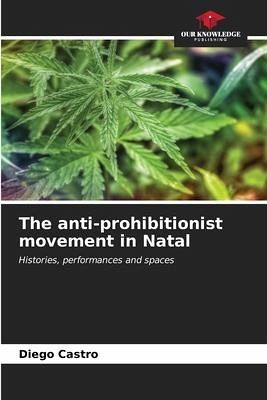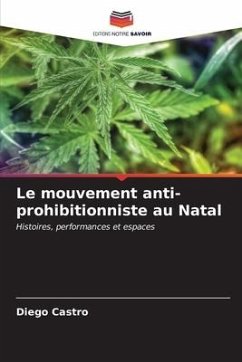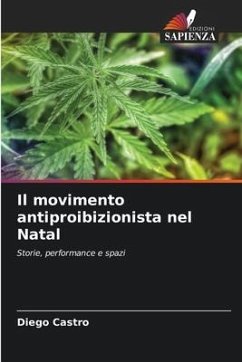
The anti-prohibitionist movement in Natal
Histories, performances and spaces
Versandkostenfrei!
Versandfertig in 6-10 Tagen
47,99 €
inkl. MwSt.

PAYBACK Punkte
24 °P sammeln!
At the beginning of the 21st century, an anti-prohibitionist collective emerged in sector II of the UFRN, organizing cannabis marches (since 2010) and cycles of debate in the academic sphere. This book seeks to understand the historicity of the anti-prohibitionist social movement in Rio Grande do Norte which, since 2010, has been deeply linked to the history of the Anti-Prohibitionist Collective of Students and Other Frequenters - Cannabisativa - and their respective connections, processes, productions, conceptions, images and memories that constitute contemporary multicultural spatialities an...
At the beginning of the 21st century, an anti-prohibitionist collective emerged in sector II of the UFRN, organizing cannabis marches (since 2010) and cycles of debate in the academic sphere. This book seeks to understand the historicity of the anti-prohibitionist social movement in Rio Grande do Norte which, since 2010, has been deeply linked to the history of the Anti-Prohibitionist Collective of Students and Other Frequenters - Cannabisativa - and their respective connections, processes, productions, conceptions, images and memories that constitute contemporary multicultural spatialities and temporalities. The issue of drugs is one of the central themes of the social reality of our times. The aim of this research is to problematize knowledge about "drugs", raising questions of social importance, using procedures linked to oral history and critical documentary analysis. Associated with the discussion of "drugs" are the themes of social inequalities, the criminalization of the poor and black people, ineffective public policies and inefficient laws.












